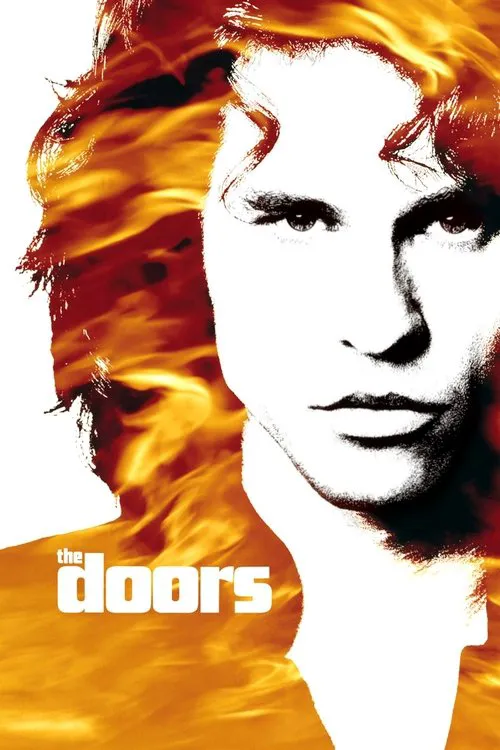The Doors

Plot
The Doors is a 1991 biographical drama film directed by Oliver Stone, which delves into the lives of the legendary rock band and its enigmatic lead singer, Jim Morrison. The film is a cinematic interpretation of the band's journey, exploring their rise to fame and the turmoil that accompanied it. The screenplay, written by Stone alongside John Milius and Randall J. Austin, is loosely based on a 1989 biography by John Densmore, a founding member and drummer of The Doors. The film opens in 1965, Los Angeles, where a young Jim Morrison (played by Val Kilmer), a 23-year-old college student, is studying literature at UCLA. Jim's life takes an unexpected turn when he meets Ray Manzarek (played by Kyle MacLachlan), a saxophonist and pianist. As fate would have it, they are introduced to a mutual friend, Robby Krieger (played by Frank Whaley), a guitarist, and John Densmore (played by Josh Evans), a drummer. This chance encounter lays the foundation for The Doors, one of the most iconic and influential rock bands of the 1960s. The film chronicles the band's early days, exploring their unique sound, a blend of rock, blues, and psychedelia. As they begin to perform and gain recognition, Jim's charisma, poetry, and enigmatic stage presence captivate audiences and propel the band to stardom. Kilmer's portrayal of Morrison accurately captures the singer's intense and brooding nature, which, as the film progresses, is revealed to be a facade for his inner turmoil and demons. As The Doors rise to fame, the line between reality and fantasy begins to blur. Jim becomes increasingly obsessed with his role as the face of the band, leading to reckless behavior and a growing estrangement from his bandmates. Meanwhile, Ray, Robby, and John grapple with the pressure of fame, struggling to cope with the commercial and creative expectations placed upon them. One pivotal aspect of the film is its portrayal of Jim's relationship with Pamela Courson (played by Meg Ryan), a beautiful and free-spirited woman who becomes his muse and companion. Their tumultuous romance serves as a backdrop for the band's escalating turmoil, as Jim's behavior becomes increasingly erratic and destructive. The narrative is woven around the band's performances, which serve as a platform for Jim's poetic and often provocative lyrics. His spoken-word delivery of "The End" is particularly noteworthy, capturing the essence of Morrison's hypnotic stage presence. The film's soundtrack, featuring The Doors' iconic hits, such as "Break On Through (To the Other Side)," "Light My Fire," and "People Are Strange," further underscores the band's groundbreaking influence on the music industry. Throughout the film, Stone draws parallels between Jim's life and the existential crises of the 1960s. Morrison's fascination with death, the afterlife, and spirituality is palpable, as is his disdain for the Establishment and societal norms. These themes, combined with the band's music, provide a rich tapestry for exploration and introspection. The film's second half delves deeper into the darker aspects of Jim's life, including his struggles with addiction, relationships, and the pressures of fame. Kilmer's performance is remarkable, capturing the intensity and vulnerability that defined Morrison's persona. The film's conclusion, set in the summer of 1969, captures the moment when Jim's excesses and self-destructive tendencies finally consume him, marking the end of an era for the band and its enigmatic leader. The Doors is a cinematic homage to a band that changed the course of rock history. Through its poetic and visually stunning narrative, the film provides a captivating portrait of Jim Morrison and The Doors, capturing the essence of their legacy and enduring influence.
Reviews
Recommendations




